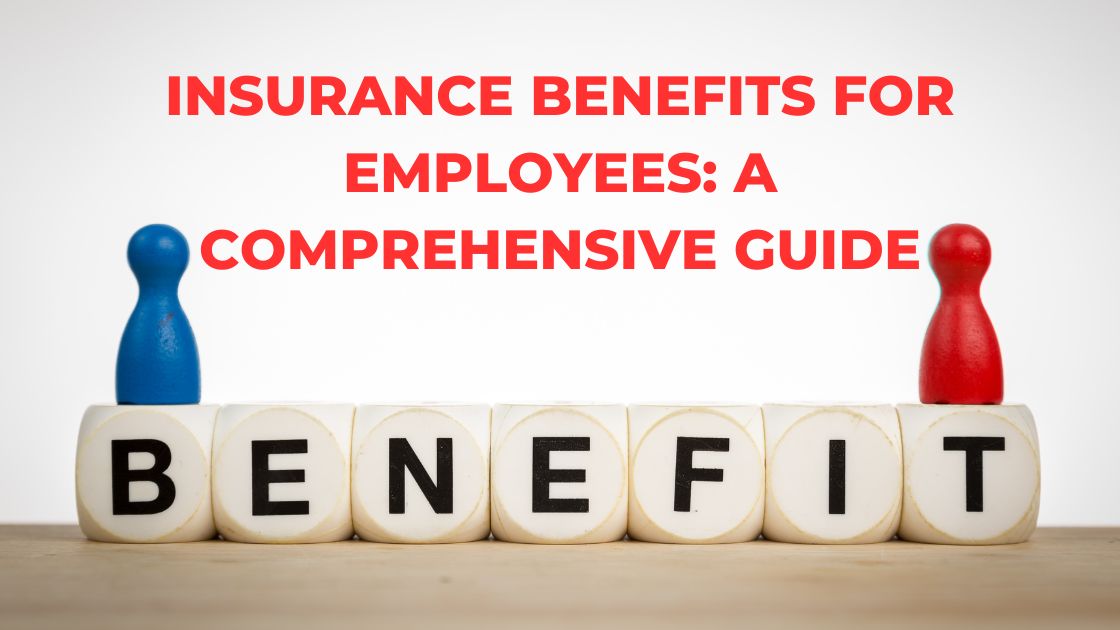Employee perks, often known as fringe benefits, are frequently considered an essential component of contemporary remuneration packages. These benefits are intended to give extra bonuses and compensation to workers in addition to their basic earnings or salary. When it comes to the many different types of employee perks, insurance, which may include medical, dental, and life insurance, is one of the most important pillars. In this article, we will discuss the various kinds of insurance benefits packages, their significance, and the most important factors to take into account for employers as well as workers.
Types of Employee Insurance Benefits
- Group Health Insurance: This all-inclusive protection is given to each individual member of an organization under the terms of a single contract. It often covers a range of medical benefits such as hospitalization, covering for maternity care and childcare expenses, critical illness insurance, reimbursement for treatment costs incurred anywhere in the globe, ambulance coverage, and more. Employees and their families are able to acquire the necessary medical assistance thanks to the availability of group health insurance.
- Group Life Insurance: Because of this insurance, workers do not need to undergo any pre-medical examinations in order to be eligible for life coverage protection. In the event that an insured worker were to die away while still on the job, this safety net would provide monetary assistance to the beneficiaries designated by the employee’s estate.
- Group Personal Accident Insurance: This coverage, which gives monetary protection in the event of accidental injury or death, is often made available to employees and workers by companies and industrial institutions as a benefit of working for them.
Inclusions in Employee Benefit Insurance Schemes
Employee benefit insurance schemes typically encompass a range of insurance options and financial protections. These can include:
- Medical Insurance
- Dental Insurance
- Vision Insurance
- Cancer Insurance
- Critical Health Insurance
- Life Insurance
- Accidental Death Insurance
- Accidental Disability Insurance
- Retirement Plans
- Gratuity
- Pension Funds
Benefits of Employee Benefit Insurance Policies
- Cost-Efficient: Most of the time, the premiums for employee benefit insurance plans are a considerable amount less expensive than those for individual coverage. The majority of the time, the premium expenses are covered by the employer, relieving workers of the responsibility of shouldering the financial load.
- Legal Liability Coverage: These plans provide protection against a variety of legal obligations that may develop as a result of unanticipated occurrences. This ensures that the employee’s family will have financial stability in the event that anything unpleasant occurs.
- Annuity Provisions: Some plans provide the opportunity for long-term investments, which, when reaching retirement age, may be accessed as a source of pension income.
- Long-Term Financial Goals: Employee benefit insurance plans are designed to assist workers in working toward the achievement of long-term financial objectives such as supporting the education of their children, paying for weddings, or saving for retirement.
- Accident Coverage: These insurances protect workers and their families against the possibility of suffering an injury, losing their lives, or becoming disabled as a result of an accident. In the event that the policyholder passes away during the period of the policy while still actively working, the family members who were selected to receive compensation do so.
- Tax Benefits: Tax breaks are available to workers as well as their employers. Employees may qualify for tax advantages on their premium payments by referring to Section 80C of the Income Tax Act of 1961. The premium may be reported by employers as a part of their company expenses, making it eligible for tax breaks.
- Cashless Services: In the event of a medical emergency, insured workers have access to cashless treatments at hospitals that are part of a network. The policyholder is relieved of the responsibility of making initial payments since the claims are settled directly by the insurance company with the hospital.
Eligibility Criteria for Employee Benefit Insurance Policies
The standards necessary to qualify for insurance might differ from one provider to the next. However, the following are some essential considerations to take into account:
- These benefits may be made available to workers by organizations such as corporations, partnership firms, private and public enterprises, and other types of businesses.
- Employers are required to have a minimum of twenty paid workers registered under their company in order to qualify as an employer.
- It is important that the employer-employee connection be recorded in the official records of the organization.
- There is a possibility that sole owners, employees working for family enterprises, and part-time workers are ineligible for employee benefit insurance programs.
In conclusion, employee benefit insurance serves an important role in safeguarding the financial well-being of workers and their families in the event that anything unexpected happens. These advantages, which are often offered by companies, come with a variety of perks, some of which include cost-effectiveness and legal protection. Before deciding on an insurance plan for employee benefits, employers and workers should each give serious consideration to the particular requirements and goals that are unique to them. These insurance benefits provide workers with a necessary safety net in this world of constant change and are an important component of a well-rounded pay package. In addition, they give a competitive advantage to the companies who offer them.
